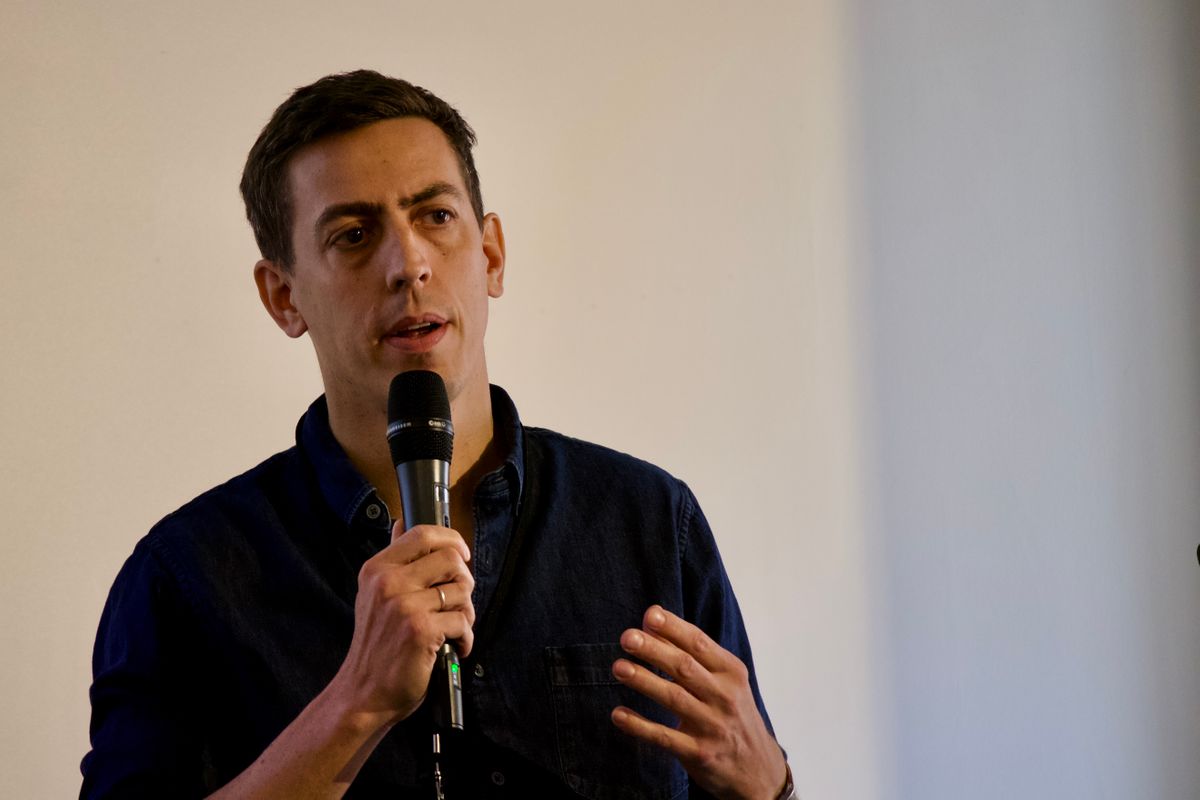Forbidden Stories: telling the climate change stories that lone journalists can’t
Forbidden Stories aims to step in when critical climate stories are in danger of dying - and the journalist along with it. connecting journalists makes them safer - and the reporting more powerful.

Laurent Richard is a French documentary filmmaker, producer, and founder of Forbidden Stories, an investigative network of journalists devoted to keeping stories alive . These are live-blogged notes from his talk at the Birmingham News Impact Summit on 7th October 2019.
Warning: Live-blogging. Prone to error, inaccuracy and howling crimes against grammar and syntax. Post will be updated in the coming days.
Here’s an idea of what Forbidden Stories do. The Green Blood project was published by 37 media organisations.
.@laurentrichard0 presents Green Blood, a joint investigation by 40 investigative journalists from all across the world. Global efforts can identify the patterns and networks behind green crimes by harmful mining companies. A pure wow. #NISBHX pic.twitter.com/1lG2pf8Pru
— Rina Tsubaki (@wildflyingpanda) October 7, 2019
He’s been producing documentaries for French TV for 18 years. He started thinking about how we can use our press freedom to help those in oppressive situations.
You can kill the messenger - but you can’t kill the message. It makes less sense to kill a reporter if there are 14 others doing the same thing.
They are a team of 9 people based in Paris. They partnered with journalists in other parts of the world, helping them tell the stories that powerful organisation don’t want them to tell. They often pick up where local journalist are simply unable to continue. There’s almost always a lot of corruption, money-laundering and danger for journalism in stories about environmental scandals.
Here’s one journalists talking about the threats she received:
If a journalist is investigating something but realises there life is going to be in danger, they can support and share the work with that individual. But more than that, they can connect up the story - the can investigate whole supply chains from gold mines through to Silicon Valley. There are plenty of companies pretending to be green, but that breaks down when you examine the whole chain.
Powerful quote on the scandal of enviro journalists and activists killed in the field - "Even if you kill the messenger you won't kill the message" - @FbdnStories @laurentrichard0 #NISBHX
— Tegan Tallullah (@TeganTallullah) October 7, 2019





